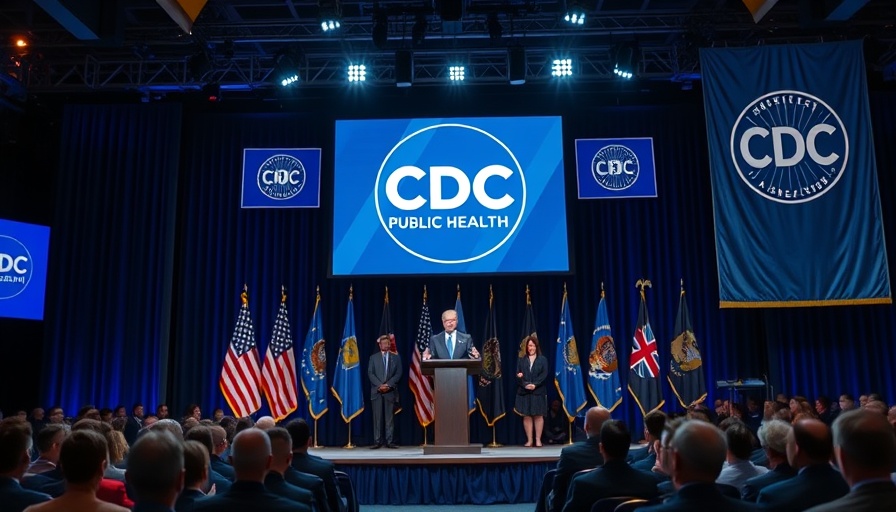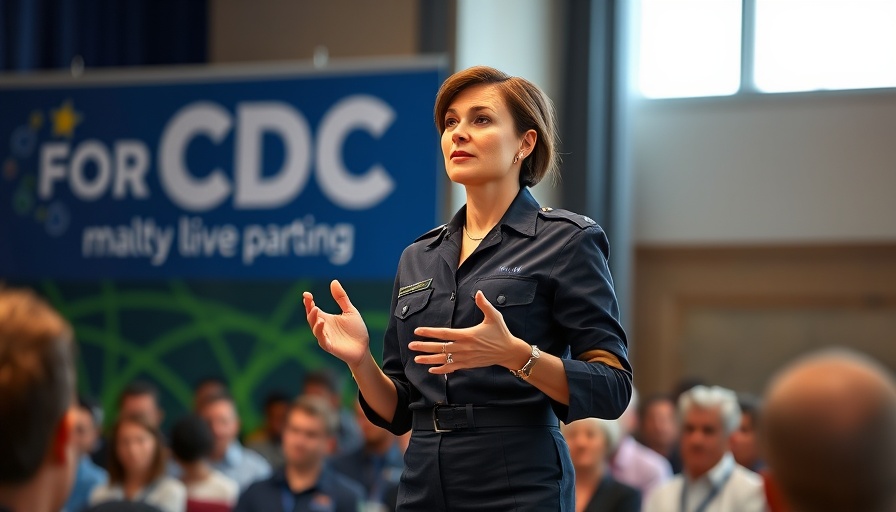
A Journey into the Heart of Consequential Epidemiology
In the realm of public health, the role of consequential epidemiology is both vital and transformative. This was brilliantly highlighted during a recent conference highlighted by the Langmuir speaker, who delved into the themes of action and empathy in the field. As healthcare professionals, it’s crucial to understand that our work transcends mere data collection; it’s about saving lives and advocating for communities in need.
In 'Consequential Epidemiology: An EIS Love Story', the essence of how epidemiology empowers public health efforts is explored, leading us to analyze its impact further.
The Impact of Epidemiology: Lessons from History
The discussion recalled pivotal moments in epidemiological history, like the eradication of smallpox, and emphasized the outdated notion that epidemiologists should remain strictly scientists. Bill Foege, former CDC director, advocated for a shift in perspective, asserting that epidemiology should act as a tool for societal change. His insights remind us that our investigations can ignite impactful public health actions.
Connecting the Dots: Advocacy through Action
Several stories shared illustrated how effective epidemiology can lead to substantial public health advancements. For instance, early detection and investigation of diseases like listeriosis and group B streptococcal infections transformed healthcare policies. Through robust data collection and analysis, the CDC could implement zero-tolerance policies for Listeria in ready-to-eat meats, significantly reducing infection rates.
Collaborating for the Future: Training the Next Generation of Epidemiologists
It’s essential that the new generation of epidemiologists embraces the legacy of advocacy and action. Working within diverse teams enables healthcare professionals to view health crises through multiple lenses, ultimately leading to innovative solutions. As seen during the COVID-19 pandemic, collaboration across various sectors—government, healthcare, and community organizations—was pivotal in combatting the virus.
Encouraging Compassionate Science
Moreover, the importance of empathy in public health discourse cannot be overstated. Engaging with communities and understanding their unique needs fosters trust in health recommendations. By prioritizing communication and transparency, healthcare professionals can effectively combat misinformation and build stronger community ties.
The Ongoing Challenges Ahead
Traditionally, public health organizations have faced obstacles ranging from funding cuts to staffing shortages, especially highlighted during crises like the opioid epidemic and emerging diseases. As the workforce adapts to ongoing challenges, the expanding role of technology in public health presents both opportunities and challenges. We must remain vigilant and responsive to changes in the health landscape to effectively address these challenges.
Empowerment through Education and Engagement
Finally, we must focus on educating both healthcare professionals and the public about the importance of vaccination and preventative measures, as highlighted in various initiatives. Remembering the stories of past successes can inspire current practices to take significant strides towards collective health improvement.
In summary, “Consequential Epidemiology: An EIS Love Story” presents a profound reminder of our responsibility as healthcare professionals. As we engage with communities, we can foster a healthier future for all. Acting with empathy, advocating for the forgotten, and igniting change through evidence-based practices can lead us forward. Let’s embrace our role as champions for public health.
 Add Row
Add Row  Add
Add 




Write A Comment